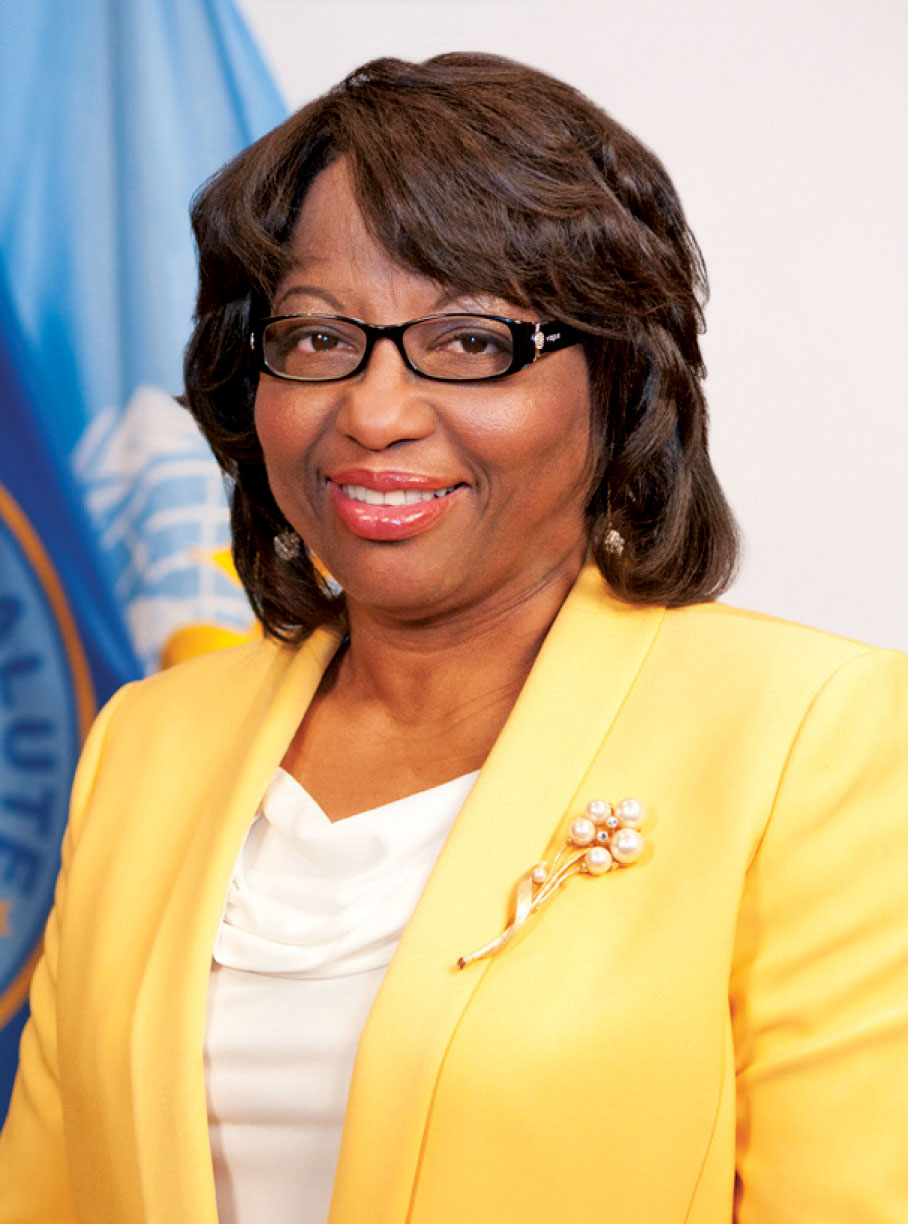While COVID-19 infections tripled in 2021 and health systems struggled to cope, “we have learned what it takes to bring this virus under control,” and must urgently address gaps in vaccine access to ensure everyone is protected, the Pan American Health Organization (PAHO) Director Carissa F. Etienne urged.

“When we compare 2020 to 2021, this year was undoubtedly worse,” with more than 98 million infections and 2.3 million lives lost, the Director said in a media briefing today.
As the second year of the pandemic draws to a close, Dr. Etienne called on the region to employ all resources available to bring the virus under control, including vaccines, masks, social distancing and surveillance.
Today more than 1.3 billion COVID-19 vaccine doses have been administered in the Americas, and 56% of people in Latin America and the Caribbean have been fully vaccinated.
But despite this coverage, the Director warned that “millions in our region have yet to receive a single dose.”
“Vaccine inequity continues to divide our region and if we don’t address these glaring gaps, we’ll fail to bring this virus under control,” she warned.
As we look forward to a new year and promising developments in COVID-19 therapeutics that may help treat the virus, curb hospitalizations and prevent deaths, we should incorporate lessons learned from vaccine rollout, Dr. Etienne highlighted.
Countries must “heed the advice of the WHO, expert committees, scientists and regulators whose jobs it is to carefully review the safety and efficacy of drugs and recommend when, where and how to deploy them.”
But countries must also start preparing now to ensure timely and affordable access to such new treatments.
The PAHO Director emphasized the importance of expanding regional production, “so countries don’t remain completely dependent on pharmaceutical imports.”
The Region has the “technical expertise, a well-established manufacturing capacity, strong regulatory infrastructure, and an effective pooled procurement mechanism via our Strategic Fund” that, if leveraged, will help us accelerate access to COVID technologies, she added. Most importantly, the region must continue to work together.
Collaboration across borders enabled vaccines to be developed in record-time, variants identified quickly, and countries to adjust responses based on latest evidence, the Director added.
“Each time we worked together, we had breakthroughs,” she said. “Sharing is central to defeating this pandemic.”
Over the past week, the Americas reported over 926,056 new COVID-19 infections – an 18.4% increase in COVID cases from the previous week. The US and Canada are experiencing a resurgence in cases as Mexico sees a steady decline. Cases are also down in Central America, with the exception of Panama.
In South America, cases have dropped in Bolivia for the first time since September, but increased in Ecuador, Paraguay and Uruguay and remained steady in Brazil and Peru.
In the Caribbean, infections are down overall, except in Trinidad and Tobago, St. Lucia and the Cayman Islands, which reported the highest weekly incidence in the Americas.













